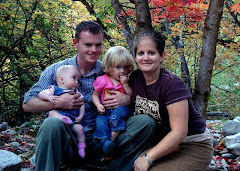 I've been reading a book my mom and brother Todd let me borrow called "We bought a zoo," by Benjamin Mee. It's a true story about a family who did indeed buy a zoo, but the author's wife is stricken with Glioblastoma and dies. The similarities in the book to my sister's sickness and death were striking. In a way I guess it opened up some old pain like pulling off a band aid on an old wound. However, I also think that it was a bit reassuring for me to see that other people went through similar tragedies and felt some of the same feelings we felt--maybe I'm not a freak after all.
I've been reading a book my mom and brother Todd let me borrow called "We bought a zoo," by Benjamin Mee. It's a true story about a family who did indeed buy a zoo, but the author's wife is stricken with Glioblastoma and dies. The similarities in the book to my sister's sickness and death were striking. In a way I guess it opened up some old pain like pulling off a band aid on an old wound. However, I also think that it was a bit reassuring for me to see that other people went through similar tragedies and felt some of the same feelings we felt--maybe I'm not a freak after all.I wanted to write down some of the things that I remember about my sister's illness that were similar to the author's experiences, just so that I will be able to recall them later. They were special times, even though they were tough. They also brought out the best traits my sister possessed.
Here's a passage: "After the funeral, the full horror of the last three months began to sink in. With hindsight killing off hope, her decline looked different. But even within a few days I was able to appreciate that although this was a tragedy for us, it was not such an unusual one. Many people endure far worse. We were not in Darfur, or Srebrenica, or the Congo, where people have recently been eaten by rebels in front of their children. Katherine had had a good life in a wealthy country, and died peacefully and virtually painlessly in as measured and gentle a way as possible."
People often ask how my Mom or Ernie endured those 2 or 3 months when Jen was so sick. I agree with Mr. Mee when he says that the horrific experience of her decline looked different after she had actually passed. I mean, we just took one day at a time, and tried to take the bad news in stride from day to day and the hope we had that she would get better seemed to be helpful. When I look back at it, look back at the long hours in the hospital and the endless surgeries and therapies, I think how the depths of hell seemed to be opening its wide mouth on top of us, but I guess I didn't think that at the time. Yes, it was hard, but it didn't feel as horrific as it seems now, looking back. I can't speak for my Mom or Ernie, but that's how I felt. Also, we were utterly blessed that she was not in pain when she died. She seemed all too peaceful those last few weeks and I think that was a huge blessing--an utter mercy.
Mr. Mee's wife's illness affected her brain much the same that my sister's brain was affected. My sister just one minute was able to speak and almost the very next minute had lost that ability, to never regain it fully. She could say things here and there, short one-word answers to questions usually. It reads in "We Bought a Zoo": "Before she almost completely lost her speech, Katherine was sitting at the table with all the family struggling to say something to my Mum. 'Can I. . .can I. . .can I. . .' Have the salt? The butter? The vegetables? people helpfully suggested. A rare look of frustration passed across her face before she finally go it out. 'Can I pass you something, Amelia?'" If I had a dime for every time Jen would start a sentence and then be unable to finish . . .That was very hard. I cannot imagine her frustration.
One time while in the hospital, my sister was asked by one of the doctors if she wanted the catheter she'd had for weeks taken out and if she would be able to use the bathroom if it was removed. I could tell that Jen definitely did not like that suggestion. I saw her shake her head and could see the conversation was agitating her. The nurse mistook her silence for indifference and said, "Jenny, do you think you could do that?" Finally, Jenny was so opinionated on the subject that she was able to get out, "Highly unlikely." I thought that was so funny and so like Jenny. She didn't just say 'no,' it was an emphatic NO.
From the book: "Her language seemed to improve at bedtime, briefly, when she could still be brilliantly dry and scathing. Having propped her up in bed with several pillows, which she indicated were working perfectly, I over eagerly searched the house for yet another. Propping it behind her, I asked if that was any better. 'Marginally worse," she said, perfectly, after a day of being unable to discriminate between producing a yes or a no.'"
I don't know what these comparisons mean, if anything. I guess diseases and disorders of the brain are somewhat mysterious. You never know which part of the brain will be affected. . .mobility, emotions, speech. I just thought it interesting to note them. I felt somewhat lifted by the thought that someone else had gone through this with a loved one and was able to continue on even though the pain and hurt seemed insurmountable. It gives me hope.






